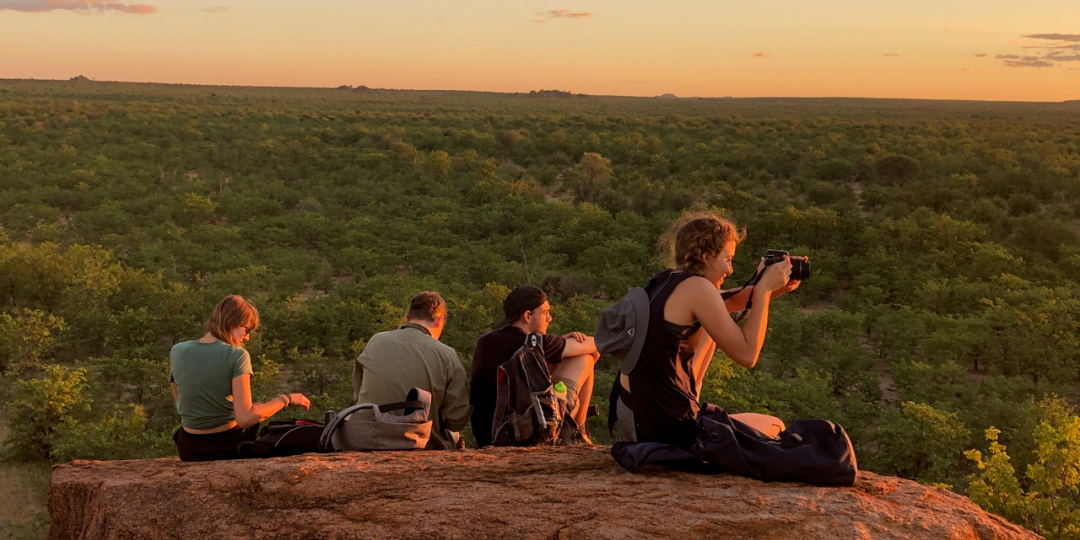Volunteer tourism, also known as voluntourism, has the potential to add substantial value to community and conservation projects in a destination, while simultaneously providing rewarding experiences for volunteers, according to Lisa Scriven, GM of Fair Trade Tourism.
The global voluntourism market size was estimated to be US$2.03 billion in 2023, and it is projected to reach US$3.2 billion by 2031, growing at a compound annual growth rate of 5.8%, according to a recent research study by HTF Market Intelligence Consulting.
Scriven said a number of factors had to be put in place to make sure volunteer placements were structured to achieve the potential. These include:
- Whether volunteers are displacing local labour – are they working alongside or instead of local people?
- Is there transparency regarding the portion of the volunteer fee that is received by the host project?
- Does the volunteer programme supplement an existing initiative, i.e., would the initiative continue in the absence of volunteers (even if at a reduced scale)?
“Importantly, one must apply great caution when it comes to volunteer placements with vulnerable people, including children. Volunteering at orphanages, for example, causes considerable harm (such as detachment syndrome) to the very children that volunteers believe they are helping and it should never be offered as a volunteering option," Scriven said.
Making a difference
Marine Dynamics Academy (MDA) in Gansbaai in the Western Cape, told Tourism Update that the company’s mission was to inspire volunteers to make a difference in the world around them by providing them with life-changing opportunities and experiences, and creating awareness that eco-tourism, conservation, community, research, and education could all dovetail into a sustainable and mutually beneficial relationship.
“We employ ecotourism to advance marine research and conservation objectives. The primary aim of the MDA is to provide individuals passionate about the marine environment with opportunities to fully engage in it.
“This involvement allows them to cultivate skills and gain experiences that can contribute to their personal and professional development, aligning with their career and life aspirations. We currently offer volunteer programmes and internship programmes,” explained Ettiene Roets, Co-ordinator and Manager of the MDA programme.
He added that volunteers assisted with data collection across its fleet of marine research and eco-tourism boats, gaining experience that could help them further their own interest in the marine environment.
“We offer many opportunities to get up close and personal with the Bronze Whaler sharks (Copper sharks), any visiting Great White sharks, and experience the magic of the Marine Big Five. Talks from marine biologists and opportunities to assist with data collection across our broad fleet of marine research will provide an overall experience that can help travellers further their own interest in the marine environment.”
Roets further noted that the MDA was ethical and sustainable in its operations, as it achieved Fair Trade Tourism certification in 2016.
“Exceptional travel experiences emerge when hosts prioritise the wellbeing of both people and the planet. The accreditation includes various categories such as sustainable placement, thorough preparation, ongoing support during placement, handling grievances/complaints, implementing safeguards, and demonstrating respect for wildlife as well as involving and respecting local communities.”
The MDA provides volunteers with accommodation, meals, transport and daily co-ordination support.
Focusing on a species
Kate Lindop, Assistant Centre Manager at Ashia Cheetah Conservation in Paarl, said its volunteer programmes gave people the chance to get hands-on experience at a conservation programme that actively made a difference to a species.
“They learn everything from animal husbandry, animal behaviour and cheetah wilding, to skills in the workshop, maintenance work and microscope work.”
Maria Hauck, Founder of Youth4Conservation (Y4C), said: “Sometimes it isn’t enough to just ‘experience’ something – but ‘doing’ something that you know has impact can be very empowering and inspiring. A time to reflect in nature, coupled with a sense of accomplishment, can be a powerful combination for young people to find their place in the world.”
Y4C is a non-profit organisation that started in 2018, and is passionate about creating meaningful conservation experiences for youth while ensuring tangible impacts on the ground. Its focus is on high school, gap year and under-graduate students.
“We began with a focus on teenagers, keen to offer opportunities to explore wild spaces in Africa, at the same time as making a contribution to local conservation projects.”
Hauck added that its flagship Botswana programme had been described as “life-changing” by many students.
“There is something very powerful about being in a remote part of Africa, where you can sit atop a rocky outcrop and observe the vast wilderness as far as the eye can see. To have an opportunity to engage in projects that you know are directly contributing to the conservation of this area is very meaningful.”
She said Y4C chose its partners carefully to ensure that the scientific research and conservation objectives were aligned with its own values.
“As the founder of Y4C, and working in the academic arena for two decades, I was confident that I wanted to build personal relationships with programmes that make a genuine impact on the ground.”























